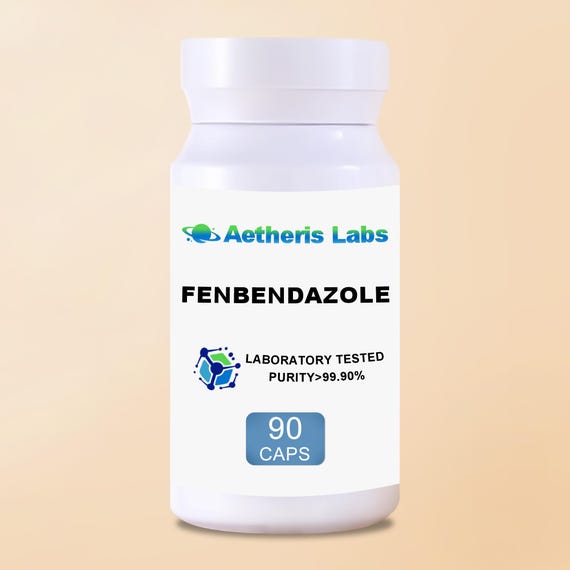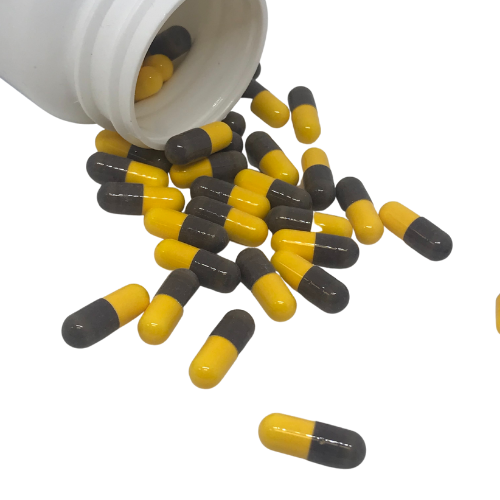fenbendazole 444: Top Reasons for Pet Health Care
Wiki Article
Exploring the Systems Behind Fenbendazole and Its Effect On Pet Health And Wellness
Fenbendazole is a commonly used anthelmintic understood for its performance against different bloodsuckers. Its primary mechanism includes the restraint of microtubule formation, which interferes with critical processes in these microorganisms. Beyond its antiparasitic buildings, fenbendazole also appears to enhance immune actions and possesses anti-inflammatory benefits. Comprehending these complex impacts can expose new applications for pet wellness. Nevertheless, inquiries continue to be concerning its complete possibility and security account.The Pharmacokinetics of Fenbendazole
The pharmacokinetics of fenbendazole, an extensively made use of anthelmintic in veterinary medication, involves the research study of its absorption, distribution, metabolism, and excretion within pet systems. After administration, fenbendazole is swiftly taken in from the gastrointestinal system, with peak plasma focus taking place within hours. Its distribution is influenced by variables such as cells binding and lipid solubility, allowing it to pass through numerous tissues efficiently. The medication goes through substantial metabolic rate largely in the liver, where it is converted right into energetic and inactive metabolites. These metabolites contribute in the medication's total effectiveness and safety and security account. Discharging takes place largely through feces, with a smaller sized percentage gotten rid of by means of urine. The half-life of fenbendazole varies amongst varieties, which influences application regimens. Comprehending these pharmacokinetic residential or commercial properties is important for enhancing its restorative use and making sure efficient parasite control in vet practices.Devices of Action Against Parasites
Fenbendazole applies its antiparasitic impacts largely through the restraint of microtubule development in bloodsuckers. This disruption impacts their structural integrity and mobile features, resulting in damaged energy metabolism. As a result, the medication properly endangers the survival and recreation of various parasitical organisms.Restraint of Microtubule Formation
Inhibition of microtubule formation stands for a vital system where specific anthelmintic agents, consisting of fenbendazole, exert their effects on parasites. Fenbendazole binds to tubulin, a protein that develops microtubules, interrupting the polymerization process needed for microtubule setting up. This disruption impairs vital mobile functions, consisting of mitosis, intracellular transportation, and structural integrity. As microtubules play a critical role in maintaining the form and feature of parasitical cells, their inhibition causes cell cycle arrest and eventual death of the bloodsucker. This mechanism is particularly efficient against nematodes, as their dependence on microtubules for wheelchair and nutrient absorption makes them at risk to fenbendazole. Subsequently, the restraint of microtubule development is a critical aspect of fenbendazole's therapeutic efficacy in veterinary medication.Interruption of Basal Metabolism
Interfering with basal metabolism is an additional important system by which fenbendazole targets parasitic organisms. This anthelmintic changes the energy production paths within parasites, primarily influencing their capacity to create adenosine triphosphate (ATP) By hindering sugar uptake and interfering with mitochondrial function, fenbendazole limitations the power sources vital for the survival and recreation of these microorganisms. Consequently, parasites become progressively at risk to ecological tensions and immune feedbacks. In addition, the interference in power metabolic process not just influences the bloodsuckers straight but additionally lowers their capacity to absorb nutrients, additionally impairing their development. In general, the disruption of basal metabolism stands for a fundamental facet of fenbendazole's effectiveness against numerous parasitic infections, contributing significantly to boosted pet health and wellness resultsProspective Adverse Effects and Safety And Security Profile
The possible adverse effects and safety profile of fenbendazole warrant mindful consideration, especially in vet applications. While normally considered safe, some pets may experience adverse reactions, including stomach disturbances such as throwing up and looseness of the bowels. Additionally, neurological signs, although rare, have been reported in sensitive individuals, highlighting the demand for surveillance throughout therapy.
Fenbendazole's security in numerous types, consisting of dogs and felines, has actually been recorded, but dose and period of treatment must be carefully handled to lessen risks. Expectant or lactating pets might likewise require special interest, as the results on developing unborn children or nursing offspring are not fully recognized.
Regular vet assessments can aid minimize prospective adverse effects and assure the medicine is provided appropriately. As a result, while fenbendazole is an efficient anthelmintic representative, vigilance concerning its adverse effects is necessary for maintaining animal wellness.

Fenbendazole's Influence on Immune Feature
Fenbendazole has been kept in mind for its potential to regulate immune system feedbacks in pets. Its anti-inflammatory properties might contribute to improved immune feature, giving a dual advantage in handling health (fenbendazole capsules). Understanding these results is necessary for assessing fenbendazole's duty in vet medicationImmune System Inflection

Anti-inflammatory Characteristics
Anti-inflammatory impacts represent a significant facet of fenbendazole's impact on immune function. Research study shows that fenbendazole may decrease the production of pro-inflammatory cytokines, which are pivotal in moderating inflammatory actions. By modulating these cytokines, fenbendazole can potentially minimize inflammation-related conditions in pets. This anti-inflammatory activity not just aids in handling signs related to different diseases however also improves overall immune system effectiveness. Furthermore, its capacity to promote a well balanced immune feedback helps avoid excessive inflammatory damage, which can cause persistent health concerns. Consequently, fenbendazole's duty in inflammation management highlights its relevance in veterinary medication, providing a double advantage of antiparasitic activity and immune system support for pet health and wellness.Applications Beyond Standard Parasitical Infections
While primarily acknowledged for its efficiency against numerous parasitical infections, fenbendazole has actually garnered interest for prospective applications beyond this typical extent. Recent researches recommend that fenbendazole may have useful effects on mobile health fenbendazole and wellness and immune action, making it an appealing candidate for managing various other health problems in pets. Its reported anti-inflammatory residential or commercial properties may give alleviation for animals enduring from persistent inflammatory diseases. In addition, some research study indicates that fenbendazole might contribute in sustaining the total wellness of animals by boosting vitamins and mineral absorption and stomach health and wellness. In addition, its potential as an accessory therapy in cancer treatment has stimulated rate of interest, as initial findings recommend it could prevent growth cell development in specific contexts. These varied applications highlight fenbendazole's flexibility, motivating additional exploration into its multifaceted benefits for animal wellness beyond its conventional use as a deworming representative.Future Research Study Directions and Implications for Animal Wellness
The exploration of fenbendazole's potential applications has opened brand-new opportunities for research aimed at enhancing pet health and wellness. Future research studies can concentrate on its effectiveness versus a more comprehensive variety of microorganisms, consisting of bacteria and viruses, consequently expanding its role in veterinary medication. The ramifications of fenbendazole's mechanisms, such as its effect on immune inflection, warrant even more examination to comprehend how it can strengthen overall health and wellness in various types.In addition, research study may discover perfect does and solutions to make the most of efficiency while minimizing possible adverse effects. Examining fenbendazole's synergistic impacts with various other drugs could cause a lot more reliable therapy methods. Longitudinal studies evaluating long-lasting results in animals treated with fenbendazole can provide beneficial insights into its safety and security and effectiveness. Overall, the continued exploration of fenbendazole offers encouraging potential to enhance pet health, demanding a collaborative approach amongst researchers, veterinarians, and pharmaceutical developers to help with advancements in this field.
Often Asked Questions
Can Fenbendazole Be Used in Livestock for Bloodsucker Prevention?
The question of whether fenbendazole can be utilized in livestock for parasite avoidance is pertinent, as producers seek efficient therapies (fenbendazole 444). Research study suggests it may supply benefits, but proper standards and vet suggestions are essential for safe usageWhat Is the Advised Dosage of Fenbendazole for Various Pets?

Are There Any Understood Medication Communications With Fenbendazole?
Current expertise suggests that fenbendazole might communicate with particular medications, possibly affecting their efficiency or metabolic process. Vet professionals advise consulting with a vet to analyze specific pet situations and identify any feasible communications prior to management.Just How Does Fenbendazole Contrast to Other Antiparasitic Medications?
Fenbendazole is usually contrasted to various other antiparasitic medications based on efficacy, spectrum of activity, and safety and security profiles. It is preferred for its effectiveness versus a wide variety of bloodsuckers while usually displaying minimal adverse effects in pets.Is Fenbendazole Effective Versus Viral or Microbial Infections in Animals?
The efficiency of fenbendazole against viral or bacterial infections in animals remains unproven. Research mainly concentrates on its antiparasitic residential properties, with limited evidence supporting any function in treating non-parasitic infections in veterinary medicine.Report this wiki page